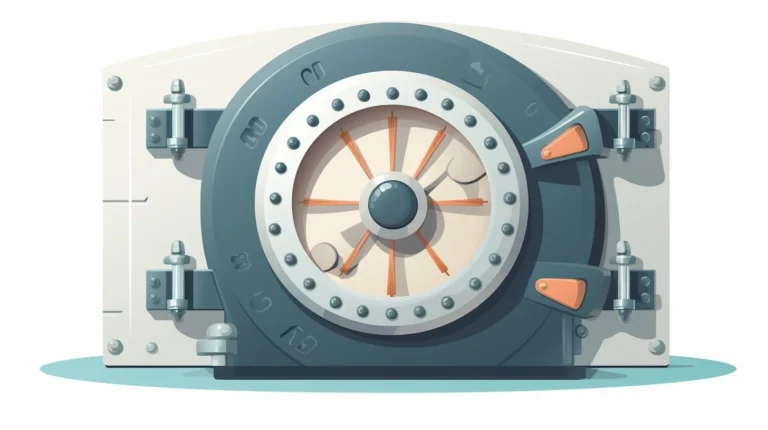Private Banking: What It Is and Who It’s For

Key Takeaways
- Private banking gives special service to rich people. A private banker helps with money tasks.
- The services in private banking make managing wealth easier. This includes making plans for taxes, estates and charity work.
- There are rules to use private banking. These include having lots of money and being ready for fees.
- Private banking has both upsides and downsides. Good parts include personal service and getting better rates on services. Bad parts could be conflicts of interest or limited product offerings.
- People should think hard before choosing private banking. They must match their money goals with costs and rules of the bank.
- High-net-worth people might also look at other choices like wealth management services that provide a range of financial advice.
Understanding Private Banking
 Private banking offers a personalized approach to managing your wealth, where a dedicated private banker will guide you through the process of achieving your financial goals. It’s tailored toward high-net-worth individuals who require expert assistance with an array of financial tasks, like investment and portfolio management, tax planning, estate planning and even philanthropy. In essence, it’s about building a one-to-one relationship with your own personal bank manager who is always within reach for any financial need you may have.
Private banking offers a personalized approach to managing your wealth, where a dedicated private banker will guide you through the process of achieving your financial goals. It’s tailored toward high-net-worth individuals who require expert assistance with an array of financial tasks, like investment and portfolio management, tax planning, estate planning and even philanthropy. In essence, it’s about building a one-to-one relationship with your own personal bank manager who is always within reach for any financial need you may have.What is Private Banking?
Private banking is a special kind of service. It is for people with lots of money. These people are called high-net-worth individuals. Private banking gives them special attention and services that fit their needs. They have a dedicated person at the bank who helps them with all things tied to money. This could be paying bills, managing wealth, or finding unique items. So, private banking makes it easy for them as they get help with almost all their money needs from one person.The Role of a Private Banker
A private banker is a key contact for clients. They know all about their client’s money matters. This helps them offer special services that fit each person’s needs. Some tasks they do include managing wealth, giving tips on investing, and making plans for taxes and estates. Private bankers make your money work hard. They create investment strategies that grow your riches over time. Also, they help you pay bills and arrange for unique banking resources which you otherwise may not get access to. Like a personal financial guide, a private banker keeps an eye on your wealth status regularly, tuning the strategy when required.How Private Banking Works
 Private banking operates on a much more personalized level than traditional retail banking. As a client, you are assigned a relationship manager who works closely with you to understand your unique financial needs and goals. This dedicated professional assists in setting up accounts, managing daily transactions and planning for the future. The services offered can range from basic features such as higher-yield savings accounts or lower interest rates on loans, to complex wealth management including estate planning, tax advice and philanthropy. To access these premium services though, there’s often a minimum requirement of investable assets you must hold with the bank; this differs per institution but is typically quite substantial. There’s also the cost factor to consider; while some banks charge an annual service fee based on your account balance, others may use a pay-for-performance model – charging only when they generate returns for their client above a pre-specified benchmark. It’s essential therefore that anyone considering private banking thoroughly understands their agreement terms before signing up. [Note]: Please write about Private Banking
Private banking operates on a much more personalized level than traditional retail banking. As a client, you are assigned a relationship manager who works closely with you to understand your unique financial needs and goals. This dedicated professional assists in setting up accounts, managing daily transactions and planning for the future. The services offered can range from basic features such as higher-yield savings accounts or lower interest rates on loans, to complex wealth management including estate planning, tax advice and philanthropy. To access these premium services though, there’s often a minimum requirement of investable assets you must hold with the bank; this differs per institution but is typically quite substantial. There’s also the cost factor to consider; while some banks charge an annual service fee based on your account balance, others may use a pay-for-performance model – charging only when they generate returns for their client above a pre-specified benchmark. It’s essential therefore that anyone considering private banking thoroughly understands their agreement terms before signing up. [Note]: Please write about Private BankingPrivate Banking Services
Private banking includes many helpful services. Many of these are tailor-made for rich clients. Let’s talk about some of them:- Relationship Management: A private banker will be your point person. They take care of all your financial tasks.
- Wealth Management Services: These include investing and planning for the future. The aim is often to grow wealth and keep it safe.
- Estate Planning: Private bankers help with this too. This helps make sure your wealth goes where you want after you die.
- Lending: You can get special loans from a private bank.
- Tax Planning: This service helps you deal with taxes in the best way possible.
- Philanthropy: If you want to give money to good causes, a private bank can help plan this.
- Credit Management: This service ensures that you have enough credit when needed.
- Cash-Flow Management: This service keeps track of all money moving in and out of an account.
Minimum Requirements for Private Banking
Private banking needs you to meet some rules. These are the minimum requirements:- You need a high amount of money: Private banking is for rich people. You must have lots of money that you can invest.
- Be okay with fees: Private banks often charge fees for their service.
- Pass checks: The bank will check your past and current money matters. They want to make sure you’re a good fit.
- Agree to work with a private banker: You must be ready to work closely with your banker. Your banker will help handle your financial tasks and give advice on wealth management services.
- Have long-term goals: Private banking is best for those who plan to grow and keep their wealth over time.
The Cost of Private Banking
Private banking is not free. It comes with costs. Every year, you must pay a fee. This annual fee depends on how much money the bank manages for you. More money means higher fees. Other fees can also add up. The cost of private banking might scare some people away. But many find it worth it to have their financial tasks managed by experts. They see value in paying the price for these services. After all, time spent on managing one’s own wealth could be used elsewhere, making money or enjoying life!The Pros and Cons of Private Banking
 When considering private banking, it’s crucial to weigh the advantages such as personalized service and tailored financial strategies against potential drawbacks like limited product offerings and possible conflicts of interest arising from pay-for-performance incentives.
When considering private banking, it’s crucial to weigh the advantages such as personalized service and tailored financial strategies against potential drawbacks like limited product offerings and possible conflicts of interest arising from pay-for-performance incentives.Advantages of Private Banking
Private banking comes with many upsides. Here are the key ones:- Personalized Service: I get a high level of care. My private banker is my main contact for all financial tasks.
- Preferential Rates: As a client, I enjoy better rates and costs for banking services.
- Financial Planning: I have pros helping me make a strong money plan.
- Investment Advice: I can get advice on where to put my money to grow it.
- Access to legal advisors: If I need legal help, my private banker can link me up with the right people.
- Estate planning help: When it’s time to plan for the future of my wealth, my private banker is there for me.
- Tax planning guidance: With this service, it’s easier to manage how much tax I pay.
- Philanthropy advice: If I want to give back, my private banker shows me how in the best way possible.
- Exclusive Benefits and Perks: These are only for clients like me in private banking.
- Attractive Interest Rates and Lower Fees: Since I am part of a small group of clients, i benefit from better terms.
- A Strong Relationship with the Banker: This helps build trust over time.
- Access to more financial products and services that are not open to all bank customers.
- Privacy and Discretion: All my details stay safe with the bank.
- Time saving benefits because someone else is managing most of my financial affairs.
- Flexibility in how I use banking services as per my needs and wants.
Disadvantages of Private Banking
Private banking also comes with some down sides. Here are a few:- Lack of Transparency: Not all actions or choices are easy to see in private banking.
- Conflicts of Interest: A bank may make decisions that help them more than they help you.
- Limited Products: Private banks don’t always have as many offerings as bigger banks.
- High Staff Change Rate: People at your bank might not stay long. It can be hard to trust a bank when the faces keep changing.
- Stiff Rules for Entry: You need a lot of money and special qualifications to use private banking.
- Less Expertise: Workers at private banks may not know as much about finance as workers at larger banks.
Deciding if Private Banking is Right for You
You may be thinking about private banking. It could help you manage your wealth better. It gives a big mix of services to clients who have a lot of money. This makes banking easier and more efficient for them. There are some things to think about though. First, do you meet the bank’s rules? Most private banks look for clients with $750,000 or more in assets. Next, are you happy to pay higher costs? Private banking often costs more than normal banking. Finally, does this match your money goals? If you want top service and advice from money experts on ho to grow your wealth, then yes! But if not, it may be best to look at other options first.Private Banking vs. Wealth Management
 Private banking and wealth management are two financial services often used by high-net-worth individuals, but they are not the same thing. Here’s a comparison to help you understand the difference:
Private banking and wealth management are two financial services often used by high-net-worth individuals, but they are not the same thing. Here’s a comparison to help you understand the difference:| Private Banking | Wealth Management | |
|---|---|---|
| What It Is | A financial service that offers concierge-like attention and customized financial services to high-net-worth individuals. | A holistic financial service that provides comprehensive financial advice and coordination of all financial services. |
| Who Serves You | You are served by a private banker, usually a certified professional, who is your point of contact and handles all your financial tasks. They help craft your financial strategy. | You are often served by a team of financial advisors that collaborate to provide comprehensive financial solutions. |
| Type of Services | Private banking services can include preferential rates on deposit accounts, financial planning guidance, assistance with estate planning, tax planning, philanthropy, and lending needs. | Wealth management services include financial planning, investment portfolio management, legal and estate planning, accounting, tax services, retirement planning, and more. |
| Eligibility | Generally high-net-worth individuals with at least $750,000 in investable assets. | Typically individuals, families, or businesses with a significant amount of wealth. |
| Costs | Private banking fees can vary and may include commissions or fixed fees. | Costs for wealth management services often based on a percentage of assets under management. |
Eligibility Requirements for Private Banking
 To use private banking, you must meet some key needs. Here is a list of what most banks look for:
To use private banking, you must meet some key needs. Here is a list of what most banks look for:- Money: You need to have a lot of it. Most banks ask that you have at least $750,000 in cash or other funds you can invest.
- Stable income: Your bank wants to see that you make good money each year.
- Assets: This is stuff like houses, cars, land and more.
- Credit score: A high number here shows the bank that you are a safe bet.
- Age: Some banks will only let adults use private banking.
Costs of Private Banking
Private banking can be quite pricey. You may have to pay commissions or fixed fees for the services you get. These costs can change based on what type of help you need and how often. Let’s say, you want help with tax planning, wealth management, or making large gifts to charity. A private banker will guide you through all these things. But that aid comes at a cost. Remember our rule though: Private banks typically ask for $750,000 in investable assets before they serve a client. So if you’re thinking about private banking, make sure to weigh the costs against the perks it offers. At times paying more makes sense if it helps save bigger bucks down the line! So think well and choose smartly!Benefits of Private Banking
With private banking, enjoy a suite of all-in-one financial solutions, personalized services, attractive interest rates, reduced fees and gain access to exclusive benefits; to understand how these perks can enhance your wealth management strategy – continue reading.All-In-One Financial Solutions
Private banking gives clients a one-stop-shop for their money matters. You work with one expert who knows your needs well. This person helps you pay bills, manage wealth, and find special deals. Private bankers make a plan to guard your cash and grow it too. They watch how your account does and tell you when there are risks with investments. If you own a business, they can help increase credit and plan ahead for change in power. Notice the ease of having all-in-one financial services in private banking!Personalized Service
Private banking gives you a service made just for you. Your private banker knows your needs and wants. They help make your money plans fit you best. This can mean picking the right bank accounts or helping you plan how to give money away when you pass on. With private banking, every choice is about what works best for you and your money.Attractive Interest Rates and Reduced Fees
Private banking is known for its special rates. Clients can get really good interest rates. They also get lower fees on financial things they use a lot. This makes using money less costly. It’s like having a sale price on your bank services all the time!Exclusive Benefits and Perks
 Private banking has special treats for you. These are perks that add more value to your wealth. You could get access to airport lounges or have special events and talks just for you. Think about having a golf day with famous players! You also get help when you want to invest in big deals not open to others. This is known as “alternative investments”. They can lead to more profit, but they can also be risky. Your private banker helps manage this risk so your money stays safe while it grows.
Private banking has special treats for you. These are perks that add more value to your wealth. You could get access to airport lounges or have special events and talks just for you. Think about having a golf day with famous players! You also get help when you want to invest in big deals not open to others. This is known as “alternative investments”. They can lead to more profit, but they can also be risky. Your private banker helps manage this risk so your money stays safe while it grows.Potential Drawbacks of Private Banking
As beneficial as private banking could be, it does come with a few drawbacks. Firstly, private banks often have a limited range of product offerings compared to regular commercial banks due to their focused approach on high net worth individuals. Secondly, these institutions also tend to suffer from high employee turnover rates which could impact the continuity and quality of service provided. Lastly and importantly, there is the potential for conflicts of interest due to pay-for-performance incentives that might promote riskier investment recommendations contrary to your financial goals.Limited Product Offerings
Private banks don’t always have many products to choose from. They work hard to make their service great, but this can mean fewer choices for you. If you want a lot of options for your money, private banking might not be the best fit. You may find it harder to spread your money around and keep it safe from risk with less variety in investment types.High Employee Turnover Rate
Private banking has one issue that can be tough. This is the high employee turnover rate. If your private banker leaves, it may disrupt things. You might have to start over with a new person who doesn’t know your financial story well. Also, you may lose trust and comfort in the bank if this happens often. So, picking a bank with low staff changes can be useful for long-term business plans.Potential for Conflicts of Interest
Private banking could lead to conflicts of interest. This happens when your private banker gets a bonus for selling you certain products. They may put their own gains before your financial needs. Their advice might not be the best for you but good for them. Also, it’s hard to tell if this is happening. Private banks don’t always make things clear. They may hide fees or costs that come from these conflicts. You must ask questions and stay alert about where your money goes.A Real-World Example of Private Banking
J.P. Morgan Private Bank is a good real-world example of private banking. This bank is a part of the global finance powerhouse, J.P. Morgan Chase and Co. It gives special services to rich people who have lots of money to invest or save, like more than $750,000! A client gets help from a person called a private banker here. This banker helps with many things related to money and wealth. These can include making sure bills get paid on time, helping plan how an estate will be handled after death (estate planning), figuring out taxes (tax planning) among others. Fees are different for each customer and sometimes it’s a set fee or other times it depends on what the client needs done or invested in by the bank.How Does Setting Up Direct Deposit Benefit Private Banking Customers?
Private banking customers can enjoy several benefits when they set up direct deposit. This convenient service ensures a hassle-free process of receiving funds directly into their bank accounts. With direct deposit, customers can save time and effort by avoiding the need to physically deposit checks. Moreover, it promotes efficiency, security, and timely access to funds, all while offering an added layer of convenience for private banking clients.
Conclusion
 Private banking is a pick for people with lots of money. It gives special service and tools to help grow wealth in the best ways. If you are one such person, it could be worth your time to check out private banking. Make sure you know about all its parts before diving in though!
Private banking is a pick for people with lots of money. It gives special service and tools to help grow wealth in the best ways. If you are one such person, it could be worth your time to check out private banking. Make sure you know about all its parts before diving in though!





